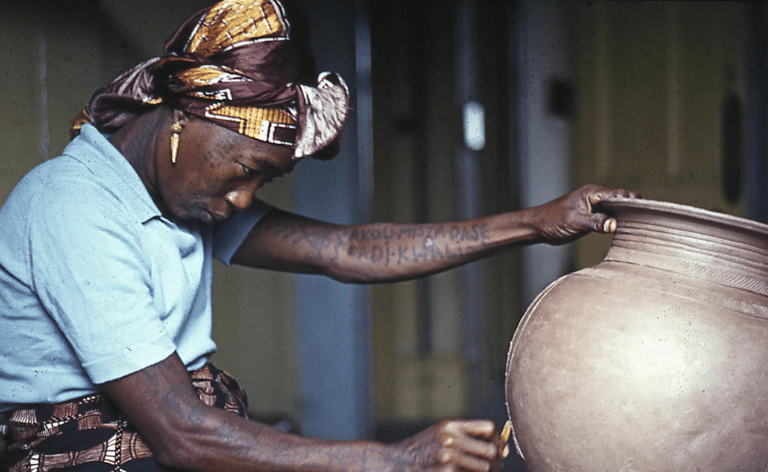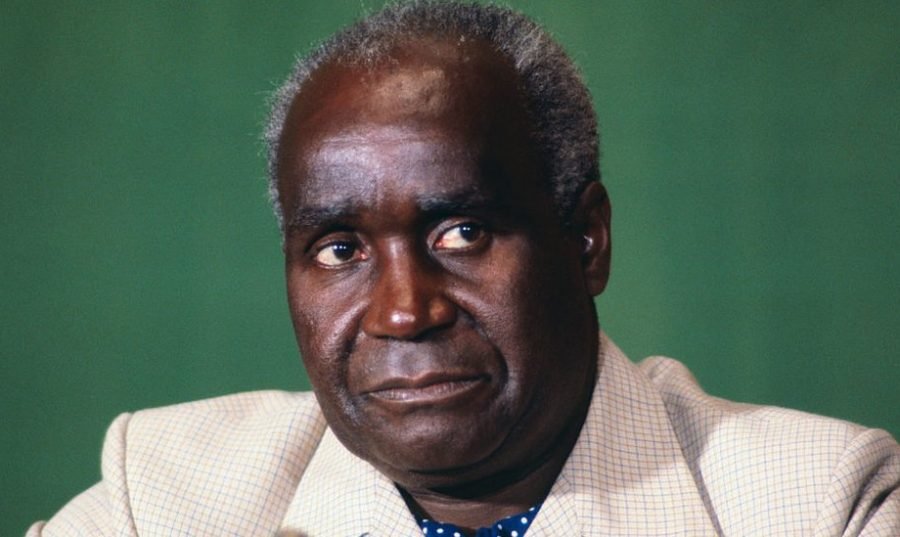Ladi Kwali: Preserving Tradition and Shaping Identity through Pottery

Art, a universal language that traverses cultures, has the power to encapsulate histories and identities. Amidst the rich culture of African creativity emerges a luminary who attained international acclaim and left an indelible mark upon Nigerian society. Ladi Kwali, a name synonymous with tradition and the transformative magic of art, stands as a symbol of resilience and innovation.
Ladi Kwali was born in the early 1920s in Kwali, a village in Nigeria’s Federal Capital Territory. Her upbringing was immersed in the rich tradition of pottery practices. Raised by Gbagyi parents, she absorbed her aunt’s ancient wisdom, learning the craft in a village where pottery served both practical purposes and as a guardian of heritage. The Kwali Area Council provided the backdrop for her development, where she mastered age-old techniques that enabled her to craft functional vessels using the coiling method.
However, Ladi Kwali’s destiny held more profound aspirations. Through relentless dedication, her artistic prowess caught the discerning eye of Alhaji Suleiman Barau, the Emir of Abuja (now Suleja). Her exceptional pieces found a place of honour in his palace, a testament to her skill and creativity. Luck took the form of Michael Cardew, a British potter and educator, who discovered her brilliance while exploring Nigeria’s pottery potential on behalf of the colonial government. Cardew’s intervention opened the door to a broader world, inviting her to join the Abuja Pottery Training Centre.
In 1954, a new chapter commenced when Ladi Kwali became the first female trainee at the Abuja Pottery Centre. She completed her training in 1959 under Cardew’s guidance. Traditional techniques seamlessly blended with innovation as she merged her Nigerian heritage with Cardew’s contemporary vision. Therefore, this fusion birthed a distinctive style that harmonized heritage with modernity. Her creations, adorned with intricate designs and delicate etchings, infused clay with life, seamlessly merging form and function.

Furthermore, beyond her contributions to art, Ladi Kwali emerged as a beacon of empowerment for Nigerian women. Her accomplishments shattered gender constraints, igniting the dreams of countless women. For this reason, her art transcended pottery; it bridged generations, uniting the past with the present. Her creations embodied Nigeria’s history, grounded in an ever-evolving world. Her art radiated indigenous wisdom, reigniting reverence for local craftsmanship and cultural legacies.
Also, Ladi Kwali’s influence extended beyond Nigeria’s borders. Her art resonated across Europe through exhibitions and practical demonstrations. The Berkeley Galleries in London showcased her work in 1958, 1959, and 1962. Her demonstrations at the Royal College in London and various German cities garnered international acclaim. Honours such as the Member of the Order of the British Empire (MBE) and Nigeria’s Officer of the Order of the Niger (OON) adorned her legacy. Her image even graced the back of the twenty-naira note.
Yet, her legacy shines most brightly within galleries worldwide, including the Smithsonian Institution in Washington and the Aberystwyth University Ceramics Gallery in the UK. However, her true impact lies in contemporary Nigeria. Her life story ignites creative spirits, particularly among women, encouraging them to embrace their heritage and artistic potential. Ladi Kwali’s name embodies tradition’s resilience and art’s transformative power in shaping identities.
In the narrative of Ladi Kwali’s journey – from a village potter to an international luminary – the strands of talent, dedication, and cultural significance intertwine. She transcended boundaries with every stroke of clay, leaving an enduring mark on Nigeria’s art and society. Her legacy whispers that art is not just expression. Rather, art is a vessel carrying a society’s soul, history, and values into the future.
Sarauta Icons takes a deep dive into the lives of individuals who made an impact on African society. You can read about other icons here.












